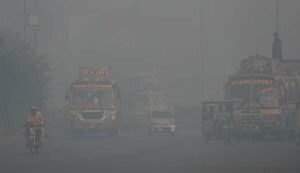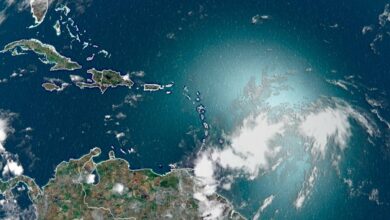Islamabad’s air quality has been deteriorating continuously for the past two months
According to Dawn, Islamabad’s air quality has been steadily declining over the last two months, with the city’s air quality index (AQI) often ranging between “red” (unhealthy) and “purple” (extremely unhealthy).

The Pakistan Environmental Protection Agency (Pak-EPA) reports that building projects and rising vehicle emissions are mostly to blame for this concerning increase in air pollution.
The main source of the dangerous air quality, according to Zaigham Abbas, Director of Pak-EPA’s Labs and National Environmental Quality Standards (NEQS), is the many construction projects located around Islamabad.
According to the Dawn study, major construction projects have produced a great deal of pollution, including the Park Road expansion, high-rise structures along the Blue Area belt, and work at the Serena and PTCL interchanges.
According to Abbas, antiquated and ineffective equipment—such as tractors, excavators, and dumper trucks—has been running nonstop to fulfill deadlines without proper pollution control procedures in place. This has caused the AQI to spike in recent weeks to an average of 182 micrograms per cubic meter, indicating dangerously high amounts of airborne contaminants.
The situation deteriorated on Friday, when particle matter (PM) 2.5 recorded a startling 133 micrograms per cubic meter and the AQI rose to 117 micrograms per cubic meter between 4 pm and midnight. According to Dawn, PM2.5 is a very dangerous pollutant since the tiny particles may enter the bloodstream and go deep into the lungs, leading to major health problems.
The deteriorating air quality has been caused by emissions from development as well as pollution from old brick kilns on the city’s outskirts. These kilns still release a lot of smoke into the atmosphere since they haven’t switched to eco-friendly zigzag technology. Additionally, the problem is being made worse by pollution from nearby Rawalpindi, which is raising Islamabad’s dangerous PM2.5 particulate matter levels.
Experts cautioned that inhabitants, especially those with underlying respiratory disorders, face significant health hazards from extended exposure to such pollution levels. Immediate action is required to address the causes of pollution and enact stronger environmental rules since the capital’s air quality is still dangerously high.





